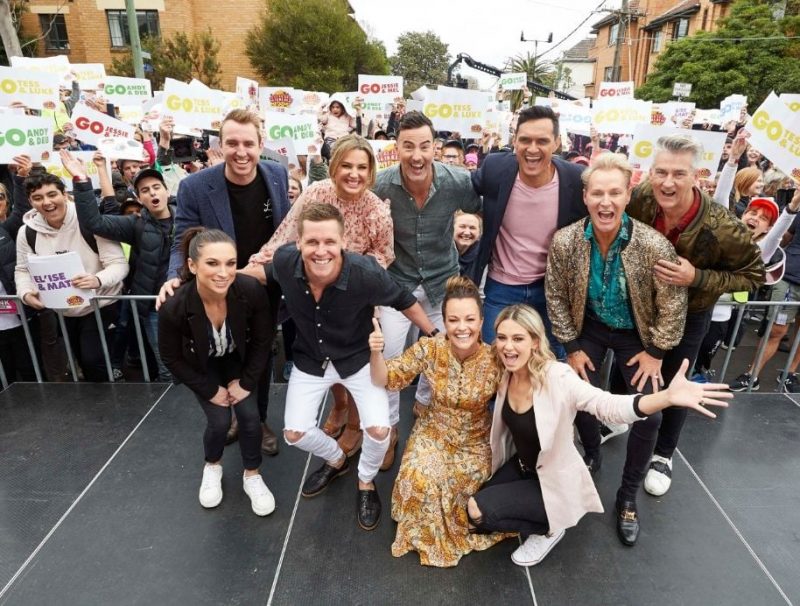Reality TV, like The Block, is the best behavioural change tool we have
Reality TV is looked down upon, and that annoys Thinkerbell’s Adam Ferrier. Because shows like The Block, or Masterchef, are the best tools for behavioural change that we have.
Reality TV is the best behavioural change tool Australia has. Think of the impact The Block has had on renovations, how Masterchef helped Australia ‘plate up’, or how Bondi Rescue made Bondi the country’s most over-subscribed surf lifesaving club. Reality TV can move Australians into action like nothing else. It’s enjoyable to watch, but it also creates change.
Tonight we’ll witness the 15th Block auction. For more than a decade, the show has attracted more than a million viewers on many nights. However, that’s just the beginning of the impact. Consider too that around 50,000 couples apply to be on the show; that’s 100,000-people applying, or one in 10 viewers who have gone to considerable effort to get onto the show.

The Block will go to auction this weekend
Then there’s The Block spin offs, The Block shop, The Block sponsorships, on it goes. Andrew Harvey, economist at the HIA, quantified the financial impact of The Block on the renovation industry in 2011: “In quarters in which The Block is aired, there is, on average, a $251m boost to quarterly renovations investment two quarters (or six months) following the airing.”


You make some valid points Adam.
Unfortunately my diagnosis is that only a true moron would enjoy the likes of Love Island or The Bachelor… and they don’t change human behaviour for the better either!
I think you raise some interesting points, but unfortunately most reality TV in the last few year has become a hunting ground for humiliation. Even The Block has veered into this territory from time to time.
Sadly it seems the less humility the lower the ratings, as for influencing behaviour sure it can, but it’s not a blanket rule across all formats, the DIY sector is very different.
I agree that not all Reality TV is equal – or behaviour changing. War on Waste was the most effective ever. Another favourite is the brilliant Outback ER. However, we still don’t have a national hospital service and most weeks Broken Hill Hospital finds itself negotiating with SA, NSW and sometimes Victoria to get a patient to where they need to go.
Interesting post as I agree the pro-social interventions of reality tv are only just beginning.
Like everything it depends on the actual content inside the genre (or device even).
Whilst The Block might prove a bonus for Bunnings bottom line (which let’s face it, IS the ultimate aim, along with other commercial benefactors) and lead people into DIY which is a good thing, the Bachelor-crappe doesn’t appear to benefit anyone I can think of except maybe Michael Hill. And there is the K-Gang …
Similarly, a Porsche can be a Good Thing if you like fast, exotic and class, but a similar VW can be a menace to society in the form of toxic fumes and fraud (allegedly).
In other words, a hammer can bang in a nail (good) but can also crack someone’s skull (not so good).
The Sponsor is Mitre Ten David.
So, it didn’t work then 🙂 (But you get what I mean).
Adam.
We all watch reality shows.
You’re stating the obvious.
Not sure you made any insightful points.
Perhaps you should go on one?
Who are ‘we all watch reality shows’
I have more respect for myself than to dumb myself down to that level…would rather watch paint dry and would likely learn more doing so
Reality TV – cheap TV to offset falling ad revenues.
Tonight, I’d like you to couple up with this show because, right from the get go it’s pure car crash escapism and I’d like to get to know this show better and understand why I’m vibing it so much – it’s probably because it’s got good banter and it’s my type – ie honest and doesn’t cheat.
So tonight, I’d like you to invite Love Island Australia to MSIX 2020. Please get underneath the (fake tanned) skin as to why we obsess with anything Roxy Jesenko or Johnny Ibrahim ie people more beautiful than we’ll ever be, and why we forgive their non-value adding behaviour. Is there a scientific / statistical relationship between the level of obsession with fantasy people and the level of ‘hard times’ suffered by society?
Reality TV – opiate for the masses. Of course it’s good. Keeps them occupied, keeps them from thinking. How good is that !
I fail to see how boorish, populist reality tv, staring the most rancid of the ‘5 mins of fame whores’ can be a good thing.
The only behaviour it contributes to changing is the behaviour of critical thought…..it cancels ones ability to
The Block is, at its heart, about couples comforting and inspiring each other under pressure from the producers. The renovation is secondary. Do the viewers learn from that? Maybe
Nice provocative words as usual Adam. You’ve probably read it, but the book Everything Bad is Good for you is excellent.
i love it
Good points. And it just made me realise why brands looking to help you quit smoking, donate blood etc etc – real behavioural change, have not leveraged the power of these shows more.
Seems most of the Mumbrella readers are too highbrow to watch these sort of shows (but are lowbrow enough to comment anonymously) however the rest of the world lap it up.